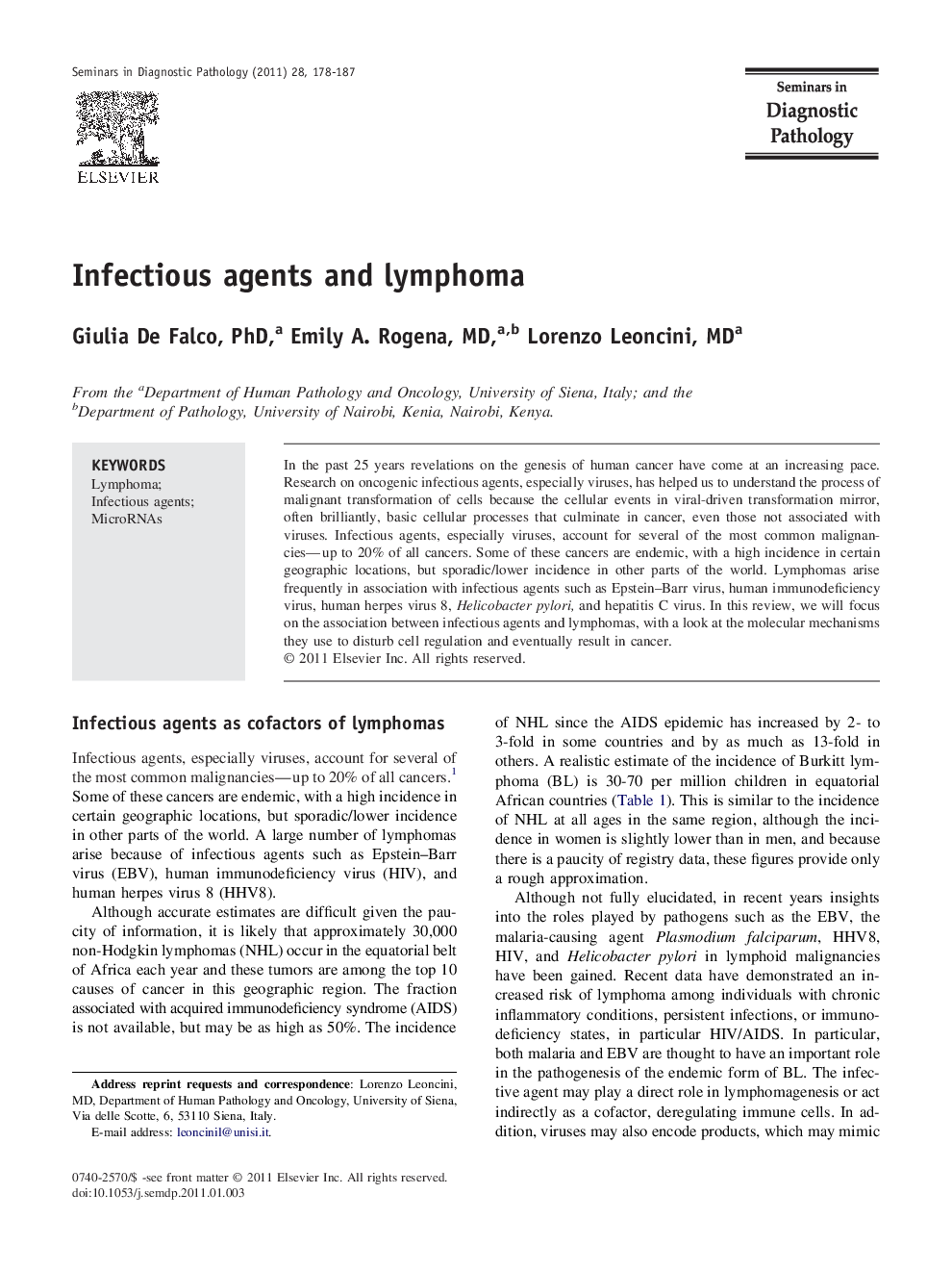| Article ID | Journal | Published Year | Pages | File Type |
|---|---|---|---|---|
| 4138462 | Seminars in Diagnostic Pathology | 2011 | 10 Pages |
Abstract
In the past 25 years revelations on the genesis of human cancer have come at an increasing pace. Research on oncogenic infectious agents, especially viruses, has helped us to understand the process of malignant transformation of cells because the cellular events in viral-driven transformation mirror, often brilliantly, basic cellular processes that culminate in cancer, even those not associated with viruses. Infectious agents, especially viruses, account for several of the most common malignancies-up to 20% of all cancers. Some of these cancers are endemic, with a high incidence in certain geographic locations, but sporadic/lower incidence in other parts of the world. Lymphomas arise frequently in association with infectious agents such as Epstein-Barr virus, human immunodeficiency virus, human herpes virus 8, Helicobacter pylori, and hepatitis C virus. In this review, we will focus on the association between infectious agents and lymphomas, with a look at the molecular mechanisms they use to disturb cell regulation and eventually result in cancer.
Keywords
Related Topics
Health Sciences
Medicine and Dentistry
Pathology and Medical Technology
Authors
Giulia PhD, Emily A. MD, Lorenzo MD,
